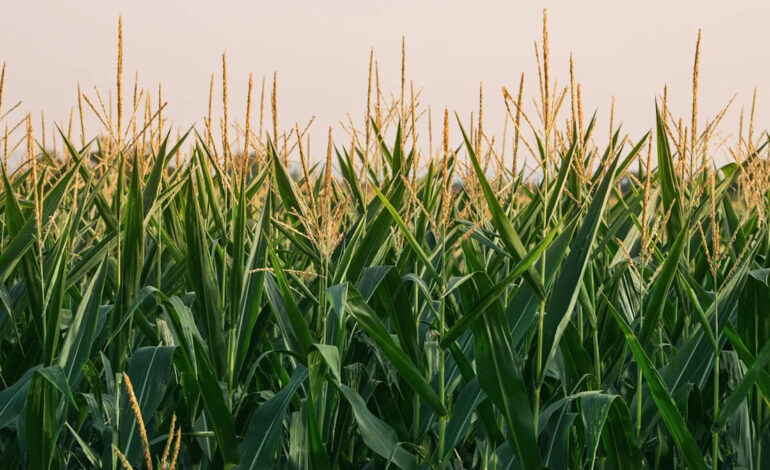Scientists Develop Bioplastics from Agricultural Waste for Recycling

Scientists have achieved a significant advancement in the fight against plastic pollution by developing a method to produce bioplastics from common agricultural materials. This breakthrough could lead to materials that are not only biodegradable but also “infinitely recyclable.” The U.S. National Science Foundation has allocated $7 million to a research team comprised of experts from Purdue University, the University of California (both San Francisco and Berkeley), Stanford University, and the biotech firm Twist Bioscience to further this innovation.
Transforming Agriculture into Sustainable Plastics
The new bioplastics, known as polyhydroxyalkanoates, can be created using readily available agricultural inputs such as sugar, corn, and agricultural waste. Currently, the majority of plastic products are derived from imported oils and gases, making this domestic sourcing not only economically beneficial but also environmentally sustainable. According to Karthik Sankaranarayanan, an assistant professor of agricultural and biological engineering at Purdue University, these polyhydroxyalkanoates maintain mechanical strength while being “infinitely recyclable.”
Although this technology shows promise, it is still in the refinement stage before widespread adoption. While polyhydroxyalkanoates have existed for some time, they are typically fragile at higher temperatures. The research team is focused on enhancing the properties of these materials, aiming to make them suitable for a variety of applications, including medical devices and product packaging.
Addressing the Plastic Crisis
The urgency for such developments is underscored by alarming statistics from the International Union for Conservation of Nature, which reports that more than 507 million tons of plastic are produced globally each year. Studies conducted by The Last Beach Cleanup and Beyond Plastics, along with data from the National Renewable Energy Laboratory, reveal that only 5% of plastics are currently recycled, leading to approximately 85% ending up in landfills and 10% incinerated. This situation contributes to widespread pollution, contaminating water, soil, and air, while also generating microplastics that pose risks to both ecosystems and human health.
The introduction of bioplastics could significantly mitigate the microplastics problem, paving the way for a cleaner and more sustainable future. Additionally, using these domestically sourced materials could lower production costs for plastic items, potentially making them more affordable for consumers. This shift would also eliminate the need for environmentally damaging oil and gas extraction.
Experts involved in this collaboration believe that their work could revolutionize the plastic industry. Emily Leproust, CEO and co-founder of Twist Bioscience, noted, “Working with Purdue elucidates real-world applications of complex sequences, which allows Twist to further advance our ability to manufacture difficult and previously hard-to-make sequences at scale, turning what was once considered difficult into routine.”
The plan moving forward involves developing algorithms to select the appropriate enzymes and analyzing their reaction speeds and structures. Researchers at the University of California, Berkeley, are also working on scaling up bioplastic production, with hopes of preparing these materials for commercialization. All partners involved are committed to refining the enzyme processes and aspire to see their innovations implemented in everyday products in the near future.






